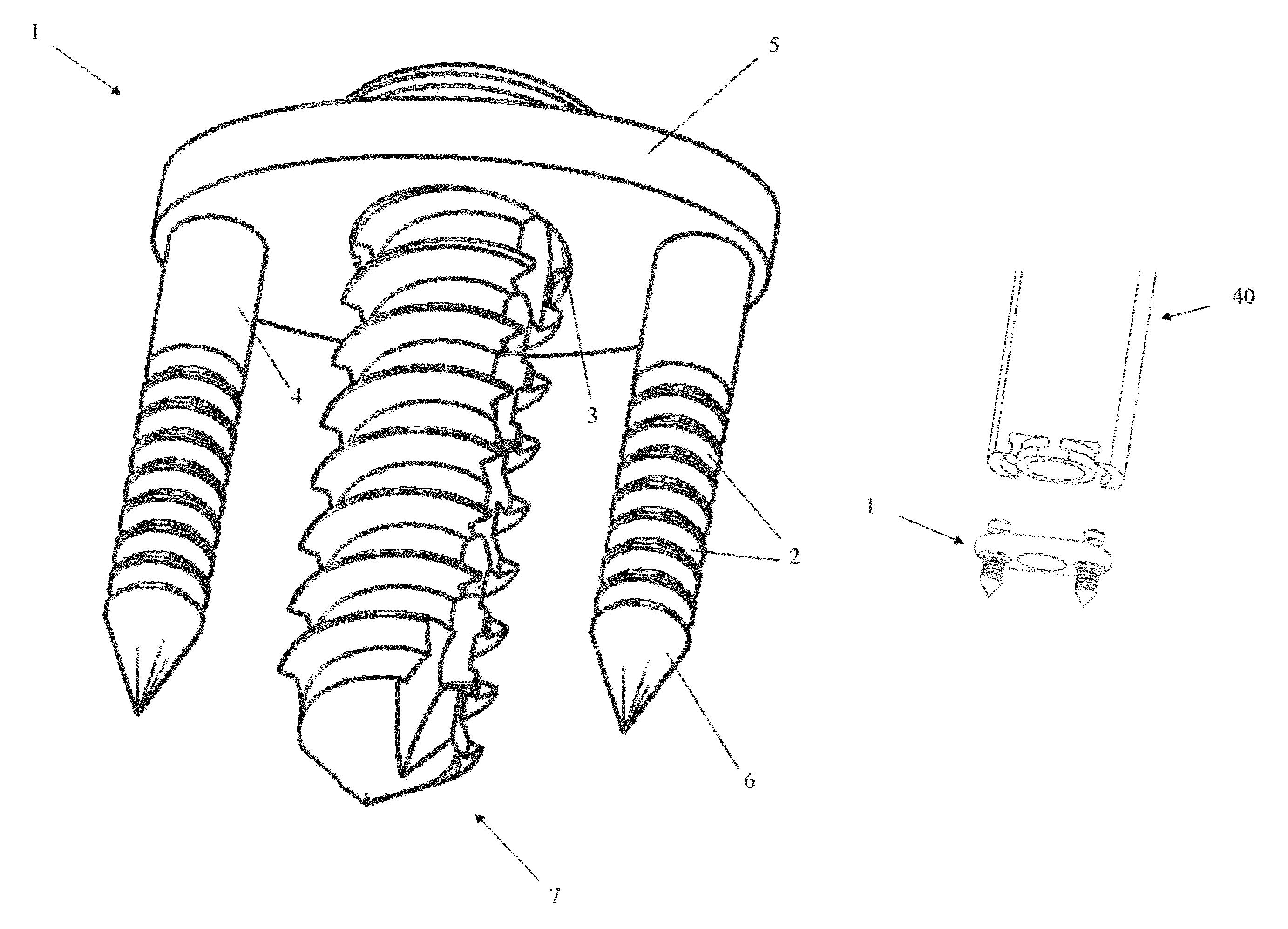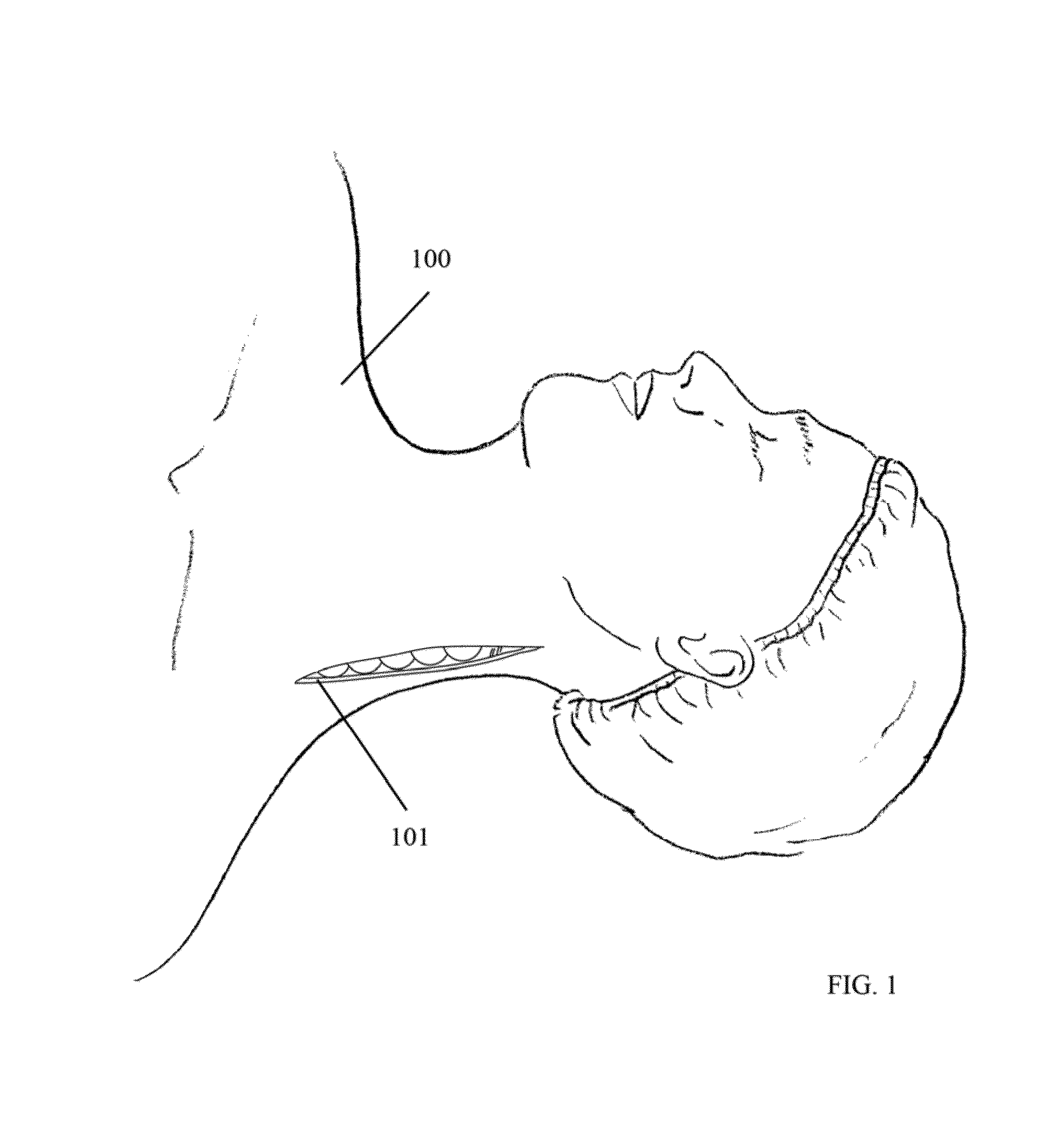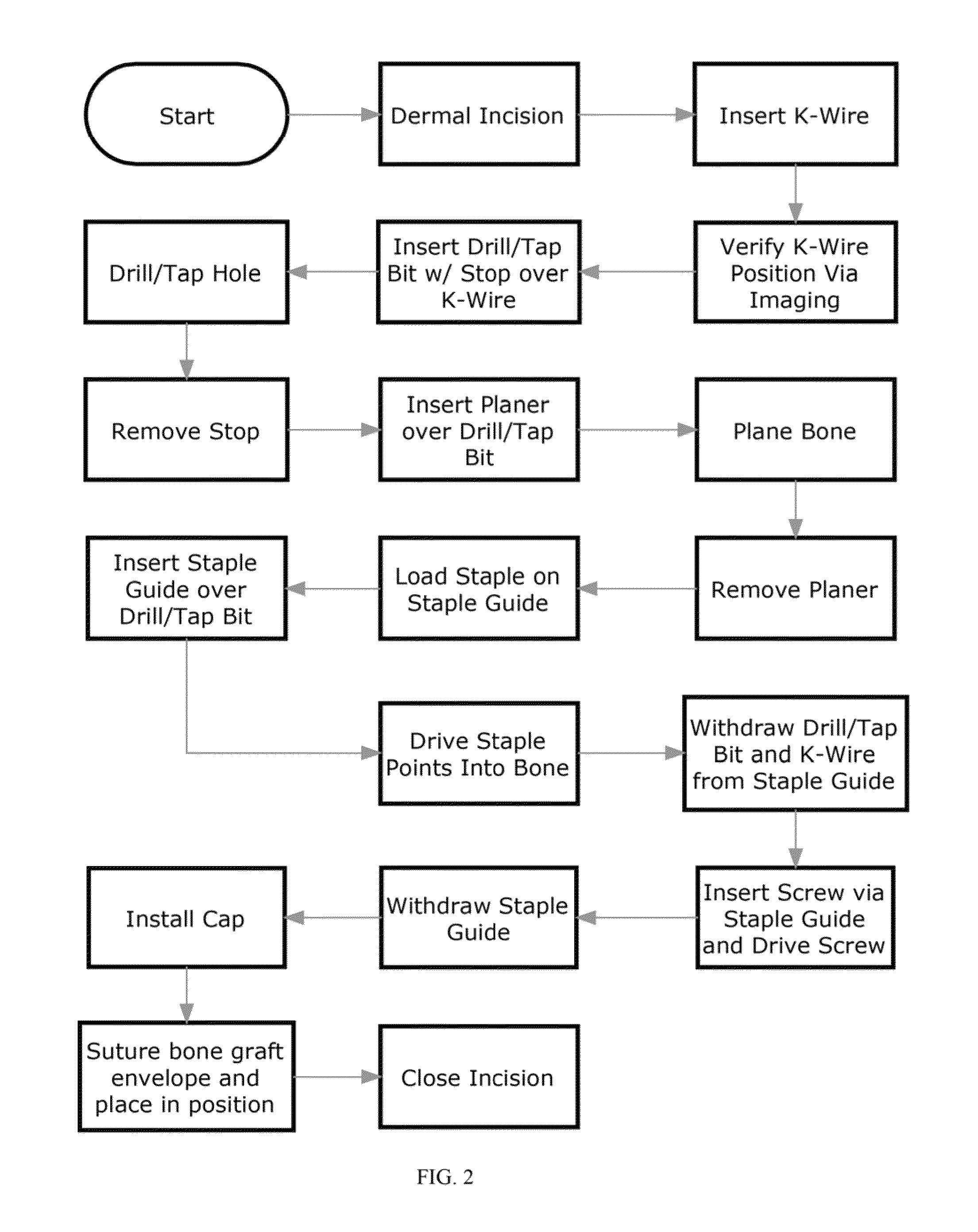Method of lateral facet approach, decompression and fusion using screws and staples as well as arthroplasty
a fusion and lateral facet technology, applied in the direction of surgical staples, ligaments, prostheses, etc., can solve the problems of compromising the stability of the spine, resection of important connective tissue and musculature, and significant pain for patients suffering from the condition, etc., to achieve the effect of promoting long-term fixation, promoting long-term fixation, and adding stability to the spin
- Summary
- Abstract
- Description
- Claims
- Application Information
AI Technical Summary
Benefits of technology
Problems solved by technology
Method used
Image
Examples
Embodiment Construction
[0041]The present invention provides for a minimally invasive surgical implantation method and apparatus for cervical spine implants that preserves the structure and to a limited degree the function of the spine. In addition to stabilization by instrumentation, embodiments of the invention provide for introduction of graft material at or near the facet joint for promotion of joint fusion.
[0042]Two facet joints are formed between each pair of adjacent vertebrae of the human spine. Each vertebra has two superior articulating facets and two inferior articulating facets, with each superior facet of a lower vertebra meeting and aligning with an inferior facet of an upper vertebra to form one facet joint on each side of the spine. In the cervical spine, the upward inclination of the superior articular surfaces of the facet joints allows for considerable flexion and extension, as well as for lateral mobility. Each facet joint is covered by a dense, elastic articular capsule that is lined b...
PUM
 Login to View More
Login to View More Abstract
Description
Claims
Application Information
 Login to View More
Login to View More - R&D
- Intellectual Property
- Life Sciences
- Materials
- Tech Scout
- Unparalleled Data Quality
- Higher Quality Content
- 60% Fewer Hallucinations
Browse by: Latest US Patents, China's latest patents, Technical Efficacy Thesaurus, Application Domain, Technology Topic, Popular Technical Reports.
© 2025 PatSnap. All rights reserved.Legal|Privacy policy|Modern Slavery Act Transparency Statement|Sitemap|About US| Contact US: help@patsnap.com



